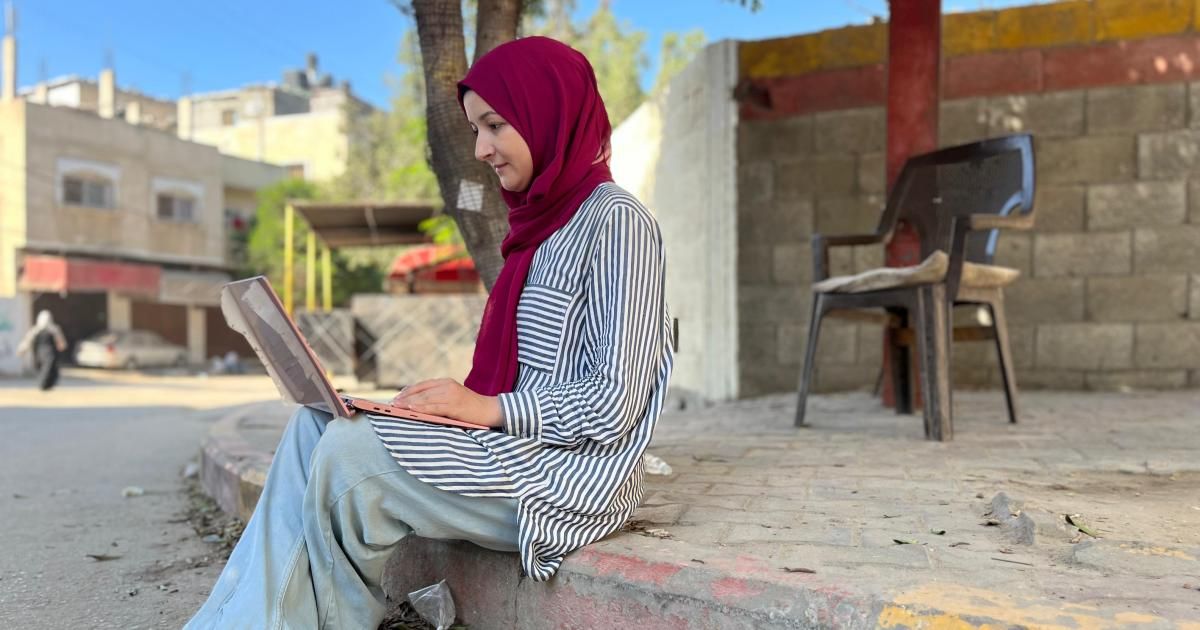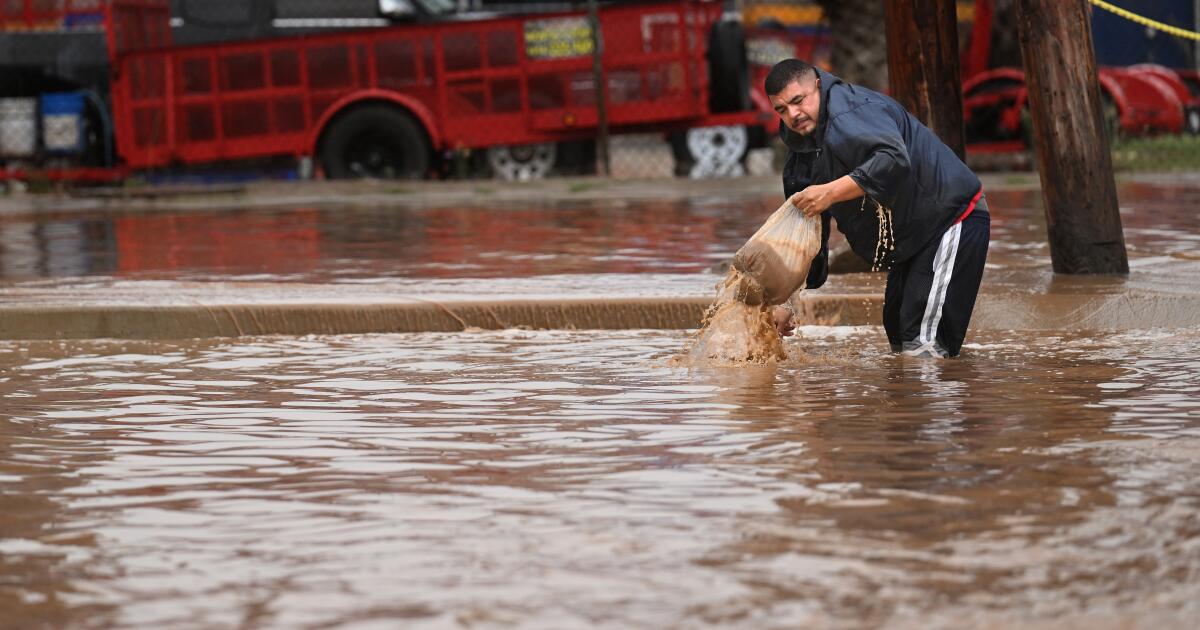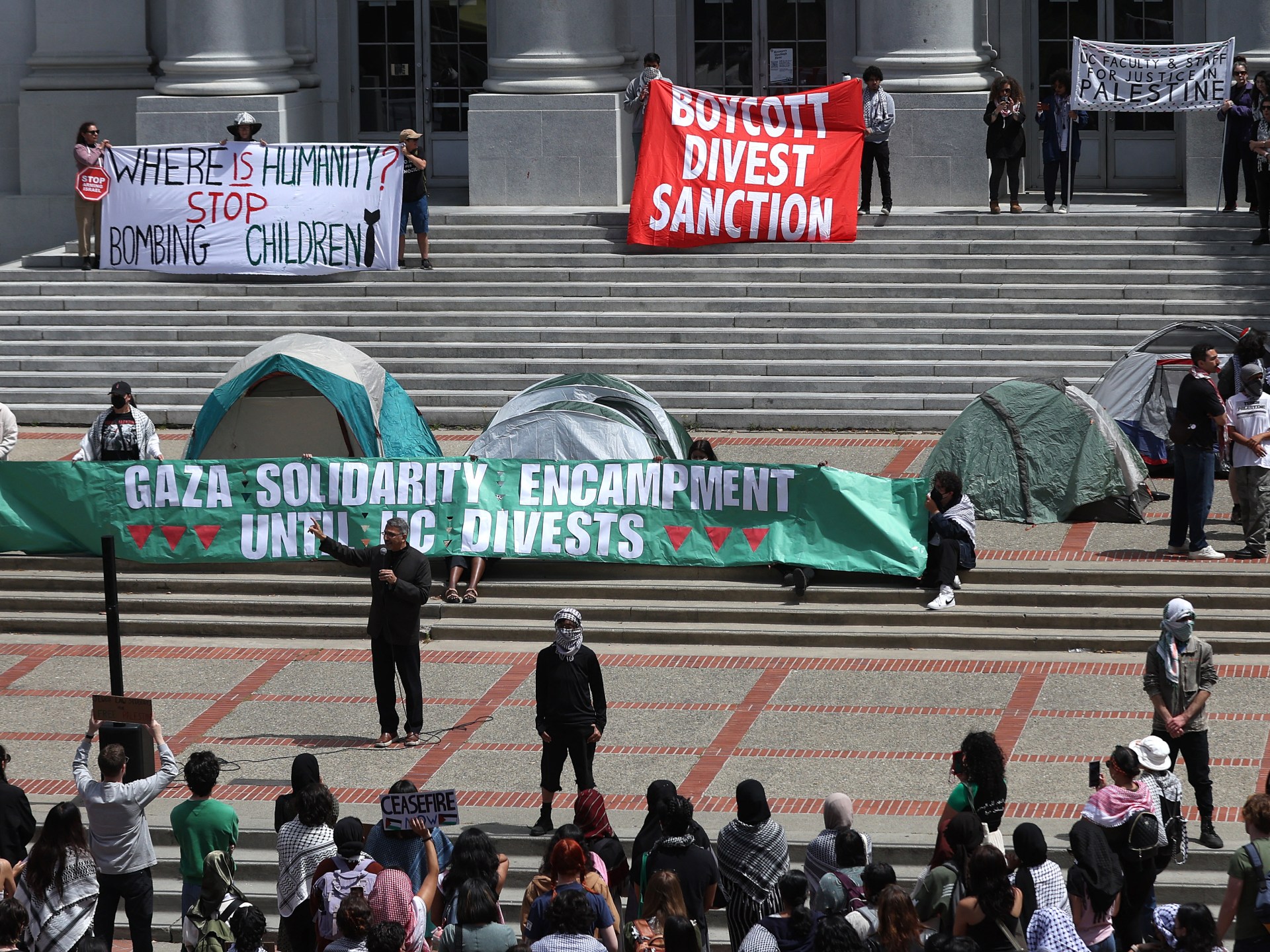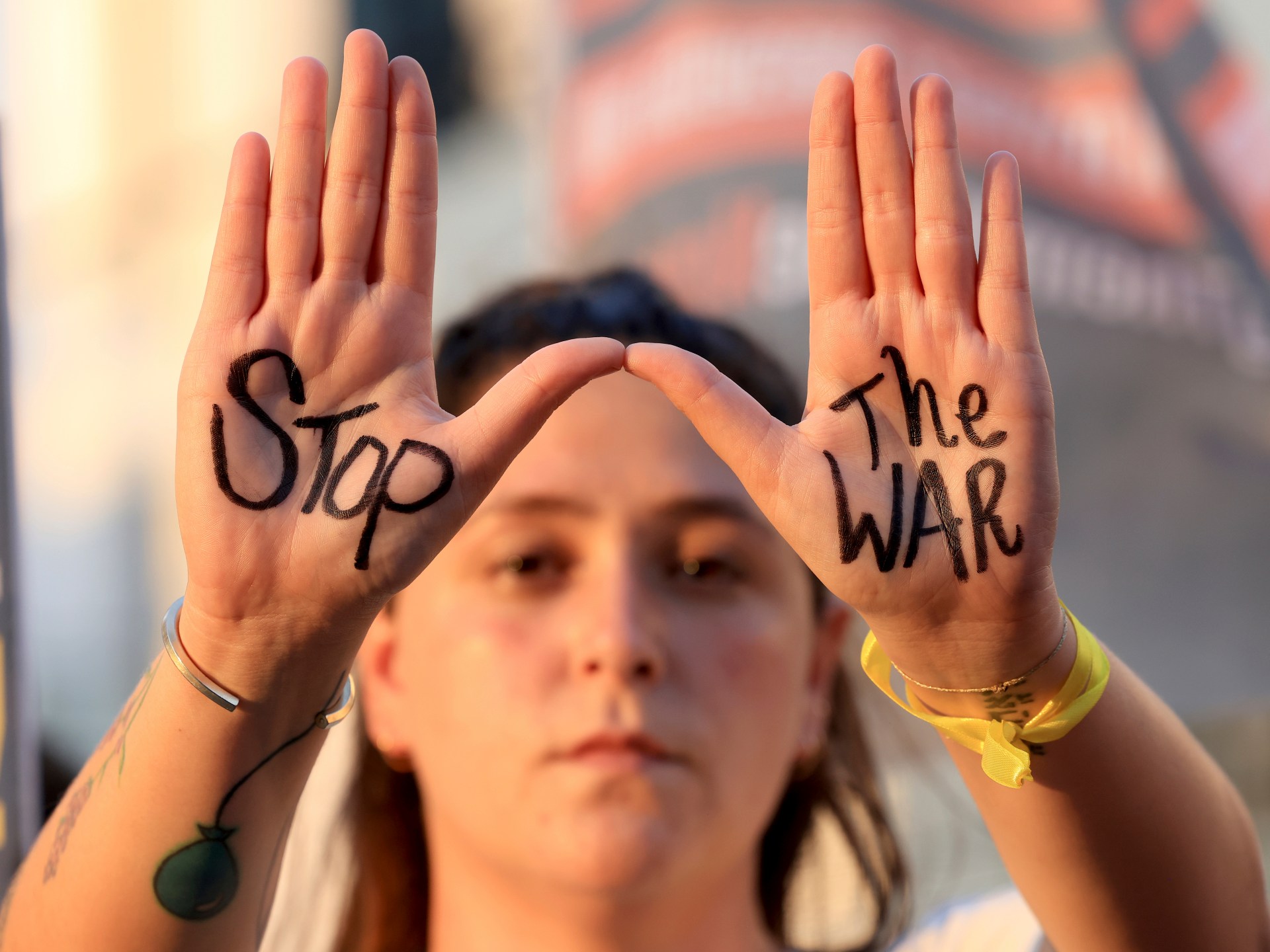Deir el-Balah, Gaza – One lesson I have learned over the past two decades is that trauma is not just experienced, it is encoded in our genes, passed down through generations, and shapes our collective memory, identity, and attitude.
About 17 years ago I received my first laptop as a family gift. It came with a black laptop case, among other accessories.
Excited for the gift, I asked for a backpack instead of the pencil case because “it’s easier to carry in case I have to run away.”
Back then, I had not experienced displacement. Now, sitting in my third shelter in Deir el-Balah, more than ten months after I was forced to flee my home, I realise that my request might have been a whisper from the past, echoes of my grandparents – driven from their home in Jerusalem to make way for the creation of the State of Israel in 1948 – stretching back across the decades.
Lifelines to a distant home
As a Palestinian, one of the things one inherits is the persistent and pervasive fear of losing one's home without warning.
You are constantly trying to protect your past, present and future, perpetually on alert, always preparing for the possibility of having to flee at any moment.
This feeling of waiting is a constant reminder of a past that our generation has never experienced physically, but has lived through genetically, morally and emotionally.
It is the threat of another Nakba, an endless vigilance against the loss of what one holds dear.
Over time, this fear fosters a deep feeling of attachment to older possessions, while new things inspire a growing sense of dread.
Your grandparents may have bought a modern villa in their place of refuge, but they still don't feel at home. They always feel nostalgic for their humble, old home.
On October 13, I woke up at around 3 a.m. and received a phone call. It was a recorded voice message from the Israeli occupation army, ordering residents of Gaza City and the northern Gaza Strip to immediately leave their homes and head south to Wadi Gaza, and designating my neighborhood as a “dangerous combat zone.”
Not wanting to leave my home, I finally gave in to pressure from my family to leave as soon as the sun came up. Thinking my trip would only last a few days, I packed a few essentials, threw on a striped T-shirt and black pants over my pajamas, and headed to what would become my “first shelter.”
Since moving to my second and then third shelter, these items have become lifelines connecting me to a home I can no longer reach.
The area where my house is located is now completely isolated, separated by Israel from the place where I now seek refuge.
Today, the only time I don't wear the tattered striped shirt I wore when I fled is when I have to wash it.
For months I clung to that one item of clothing and refused to buy anything new. It was a worn-out link to my regular life, a comforting relic amid the chaos.
But in the end I had to face reality: I couldn't continue indefinitely with just one shirt.
However, I still meticulously take care of the one bag I managed to grab and persist in wearing the same shoes, the same glasses, the same prayer rug and the same clothes.
During the eighth month of my displacement, I thought I had lost my sunglasses, a pair I bought in Gaza City a couple of years ago.
I walked down the street crying silently and promising myself that I would never buy another pair of shoes from my shelter zone. The loss felt like a part of my identity was fading away, like a scent of home was fading away. My heart physically ached.
In a final act of hope, I called my family at the shelter and asked them to look for the sunglasses. “Yes, we found them,” was news as monumental as the fact that we would be allowed to return home.
Over time, these attachments take on even stranger dimensions.
For the past nine months, I have refused to cut my hair the way I used to at home. Until recently, I hadn't stopped to think about why.
I realized I didn't want to cut off my “house hair” and let my “shelter hair” grow in its place.
Priceless sacrifices
At the start of its devastating war on Gaza, Israel declared a “complete siege” of the enclave, which had already been under blockade for 17 years, blocking the entry of essential items, including food and water.
Since then, water has become scarce and often unavailable, exacerbating the crisis. Israeli attacks on water sources across the Strip, including wells and infrastructure, have aggravated the dire situation.
By the end of the first month of displacement, during which I took refuge with about 70 people (two-thirds of whom were women and children), we began to understand that the water crisis would last for months.
We went days without drinking water and we celebrated when the water truck passed by our shelter every four or five days.

In an era when we had to ration every drop of water and literally count the sips we drank each day, we did not have the luxury of showering every day, or even every week.
This led many women in my shelter – and, as I later learned, across the Strip – to cut their own and their children's hair, so as not to use too much water when bathing or to minimize the risk of lice when they had to go weeks without being able to wash their hair.
Reflecting on the deep emotional significance of my own hair, I can only imagine the emotional toll it must have taken on these women to have to cut one of their last links to their former normal lives.
Removing a part of your identity and facing unfamiliar reflections in the mirror – faces that no longer resemble who they once were – must have been a profound and painful sacrifice to cope with a harsh reality that feels increasingly alien.
I cannot say how many women have resorted to this since then, but one thing I know for sure is that when we finally return to our homes in Gaza City and the northern Gaza Strip, the moment we set foot home, no woman in Gaza will keep her hair long.
We all have an unspoken promise to ourselves that once we return, we will finally cut off our “shelter hair” and allow our “home hair” to grow back, nourished by the peace we have longed for.












